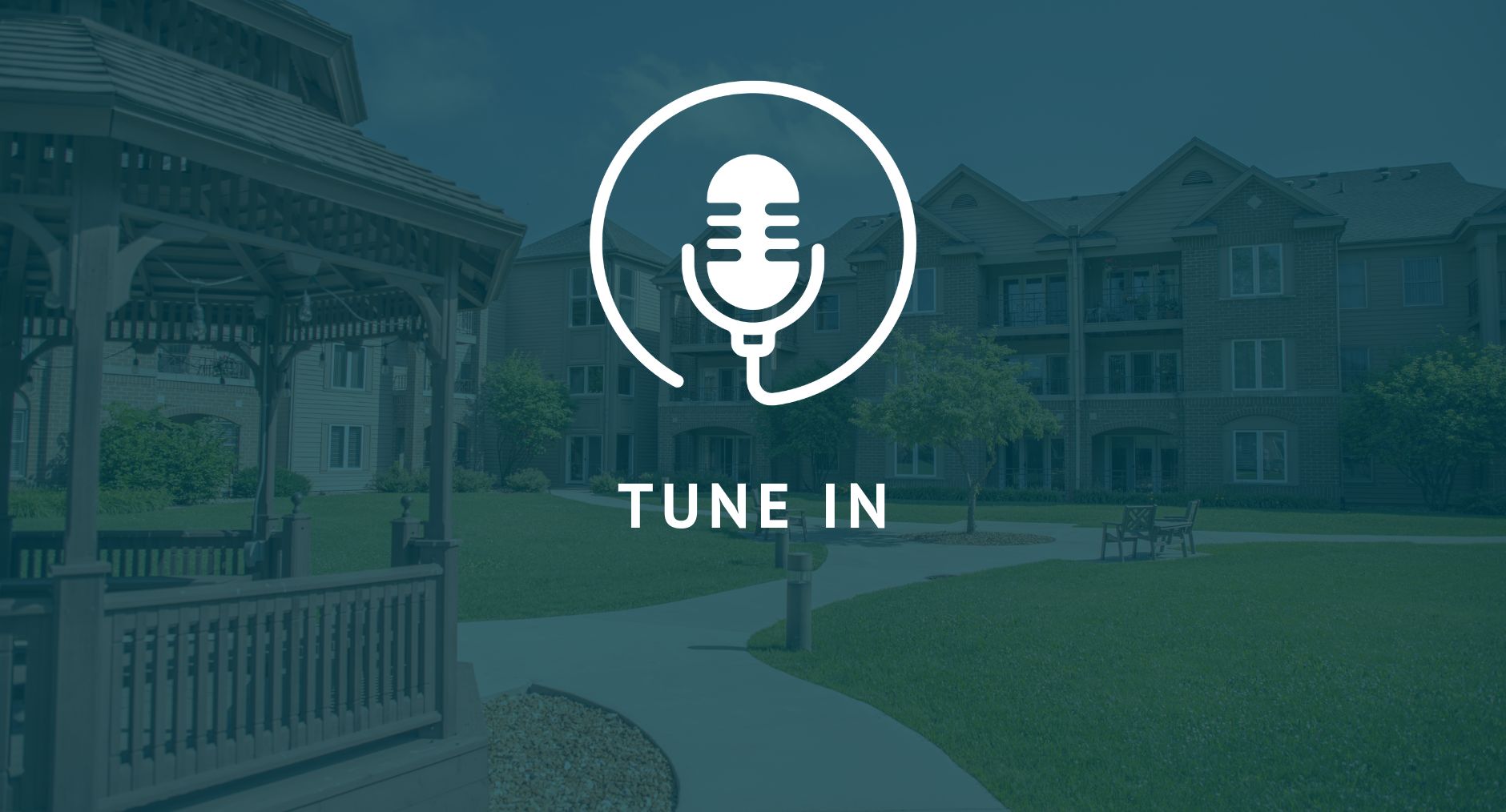Podcast: Choosing a Senior Life Community
June 12, 2023
 As individuals age, there are some daily living activities that just become more difficult. In decades’ past, people had very few options other than a traditional “nursing home” or relying on caregivers. Today, senior living communities offer an experience that feels closer to one’s home. Not only that, but they provide a number of benefits for aging individuals.
As individuals age, there are some daily living activities that just become more difficult. In decades’ past, people had very few options other than a traditional “nursing home” or relying on caregivers. Today, senior living communities offer an experience that feels closer to one’s home. Not only that, but they provide a number of benefits for aging individuals.
Ben March, Executive Director of Senior Services at Riverside Senior Life Communities, shares what seniors should look for when considering such a community.
Different Types of Senior Living Communities
Typically, a senior living community is any community that provides services for individuals 55 years of age and older. Not every one is the same, either. They can range anywhere from meal services to housekeeping services to healthcare services.
“It's important to know exactly what kind of community you're looking for so you or your loved one, your relatives, friends can all gather and talk about what the most important thing is to ensure the best quality of life possible,” states March.
For example, a community that focuses on independent living generally offers housekeeping services and the option to sign up for meal services. Members can make their own decisions and come and go as they please. There are often activities members can participate in, based on their interests.
With assisted living, individuals need help with an activity of daily living (ADL). This might be medication administration, bathing, grooming, or dressing.
Then, there are memory care communities for residents who may be living with dementia. These individuals often rely on a power of attorney to make decisions for them so they can experience the best quality of life possible in their remaining years.
It’s not out of the question that a person would transition from independent living, to assisted living, and eventually to memory care if that was the path they are on. In these instances, it’s nice to have a campus where all three options are available. This provides a sense of familiarity—a factor of care important in dementia-related diagnoses.
“A lot of people get nervous when they move. They don't know what the unknown is. They're looking for familiarity, and it should help them transition better and more easily move to a new environment,” shares March.
Beyond Bingo
One misconception March often encounters in his position is that a senior living community offers bingo and movie night and that’s the extent of the community’s activities. At Riverside, nothing could be further from the truth. There is a vast range of activities residents can participate in, from trips to the casino and restaurant outings to “sip and paint” nights and concerts in the park.
Riverside also brings in experts like a dietician, who can advise residents on the best nutrition for their individual needs. “We have all kinds of bodies that we take different feedback from. We have a new resident board. We have a food committee. We have many different things that we get feedback from the residents on, so they can join any committee they would like.”
Key Considerations When Choosing a Community
A key piece of advice March offers is to consider senior living before you have to go there. Don’t wait until you’ve experienced a catastrophic event, such as a debilitating stroke, to decide where you would like to live. Of course, this depends on personal preferences. Do you want a vibrant community? One that’s close to friends and relatives? Access to your physicians? Additional questions might include:
- How friendly is the staff and other residents?
- Are the meals to your satisfaction?
- Does it feel like “home”?
- What sorts of activities are available?
Make sure you’re considering the factors that will provide you the best quality of life on your terms. “I always encourage someone to make that decision for themselves and not put it in someone else's hands,” notes March. There are options to take a tour of different communities so you get a sense of what they offer.
A Win-Win for Residents and Their Loved Ones
It’s important to note that residents aren’t the only ones benefiting from senior living communities. Children or other loved ones often regain a sense of freedom, as some logistical burdens are lifted (e.g. making pharmacy runs, transporting mom or dad to doctors’ appointments, etc.). Seniors feel better knowing they’re not inflicting extra work on their loved ones as well.
“Senior living allows them to live their own lives, as well as have their desired quality of life and independence,” assures March.
Want to Hear More? Listen to the Podcast:
Check out the full conversation with Ben March on this episode of Well Within Reach.